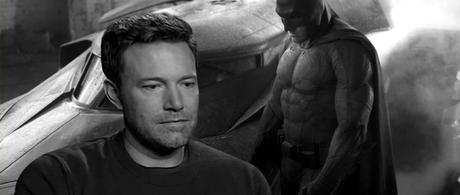
You could not have picked a better contrast between that which does and does not matter than two days ago when news headlines touting Donald Trump's immigration ban and firing of the acting Attorney General were coupled with headlines about Ben Affleck announcing he would not be directing The Batman movie. A constitutional crisis 10 days into Trump's presidency versus a comic book movie losing its director who also happens to be its leading man? Gosh, they both seem equally worthy of our attention, he says sarcastically.
But Ben Affleck departing Batman is exactly the type of pop culture event I'm supposed to be reacting to, especially considering my lifelong Batman fandom and the considerable extent to which I've written about Batman before on this site. As such, let's take this story seriously for a moment and ask what to make of Affleck's decision to step down as Batman director citing, as he did, his need to lighten his already considerable workload since he's already pegged to write, produce and star in the movie. His Batman is the best thing to come out of the DCU so far (with Margot Robbie's Harley Quinn not too far behind), but his casting always carried the promise of him likely directing one of these DC movies. What happened?
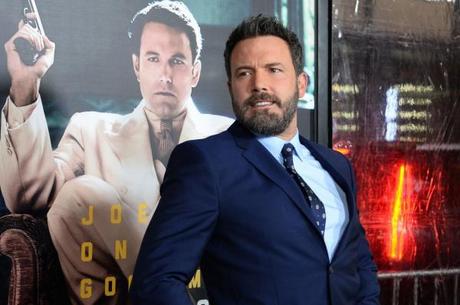
Affleck has consistently argued for making the best Batman movie possible instead of focusing on simply rushing a Batman movie to market, but he's been forced on more than one occasion to dispute overly insistent claims made by WB executives. For example, at WB's presentation to the National Association of Theater Owners last year Kevin Tsujihara jumped the gun in announcing a solo Batman to be written and directed by Affleck only for Affleck to later clarify that no such deal had been finalized. So, Affleck now making a decision which appears to be geared toward ensuring they produce the best movie possible isn't all that surprising.
Not that we should automatically anoint Affleck as the sole character of integrity in a den of commerce-driven fools. After all, three weeks ago Affleck went on Jimmy Kimmel Live and announced he was officially directing The Batman, even though reliable behind the scenes sources told Forbes' Mark Hughes that Affleck was already in the process of quitting as director while playing company cheerleader on Kimmel.
Point being: we don't really know what's going on at WB right now. Affleck' Batman script, said at one point to be loosely based on the first Batman: Arkham Asylum video game and confirmed to feature Deathstroke as the main villain, is a rumored to be a mess, with Affleck likely to now entrust re-writes to Geoff Johns. This apparent failure to produce a quality script is a continuation of what has likely been a humbling couple of years for Affleck, which is saying a lot considering this is the same man who lived through Bennifer, went to rehab and still hasn't completely erased the stigma he earned from years of terrible movies.
Since taking the role of Batman in late 2013, he's gone through a messy break-up with wife and mother of his three kids Jennifer Garner (they've since reunited, says random tabloids), became a sad internet meme when a camera seemed to capture the moment his soul broke during the Batman v Superman backlash and suffered the first outright box office bomb of his directorial career, with WB taking a $75 million write-down on the little-seen Live By Night. Now there's speculation that in addition to departing The Batman as director Affleck might be contemplating vacating the role entirely, if not immediately then at least after they finish Batman, which likely has little chance of hitting its 2018 release date now.
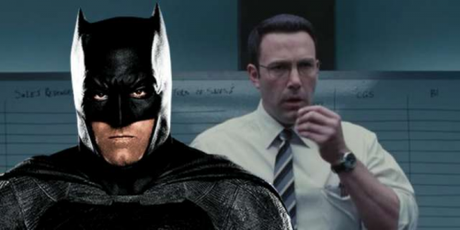
Hey, at least The Accountant was pretty good (and moderately successful at the box office). Also, Batman v Superman and Suicide Squad both made a lot of money, and Affleck doesn't exactly embarass himself in either.
But how did we get here? Why did Ben Affleck, then fresh off a Best Picture Oscar win and two consecutive box office hits as a director ( Town, Argo), agree to play Batman in the first place? To paraphrase The Mummy Returns tagline, the most popular character in comic book history was revived by the one man who should have known better.
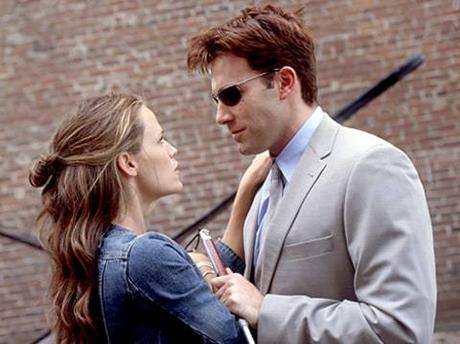
After all, Affleck famously said, "By playing a superhero in Daredevil, I have inoculated myself from ever playing another superhero. Wearing a costume was a source of humiliation for me and something I wouldn't want to do again soon."
That was in 2006 at the Hollywoodland premiere. Batman Begins and Superman Returns had just come out, and Iron Man was 2 years away. By the time Affleck's Argo arrived in 2012 The Avengers had just made a billion worldwide and effectively reshaped the film industry.
Plus, to be fair, Affleck is not the first repeat player in the comic book movie game. Chris Evans went from The Fantastic Four to Captain America. Ryan Reynolds went from Origins: Wolverine to Green Lantern to Deadpool. Brandon Routh was once Superman, and now he's Captain Atom on Legends of Tomorrow. Michael Keaton was the Batman of my youth, and now he's about to become the Spider-Man villain of my nephew's youth. Outside of Keaton, these actors redeemed initial failures by giving the superhero movie a second (or third) try, and that desire to right a wrong likely played into Affleck's decision.
He was also swayed, for better or worse (and, who are we kidding, it's definitely for worse), by Zack Snyder's enthusiasm and overall vision for Batman v Superman. As Affleck explained to EW (via Collider) last year while promoting The Accountant:
Initially I took the idea of doing Batman in the abstract. I was sort of uncertain about it. I went in and looked at Zack's long-term worldview and the take he had on this character. It's within the kind of canon of Batman, and the part of the Batman canon that he chose and the way that he saw taking it long-term, that was interesting to me. And the partner that he chose in telling this story is Chris Terrio [who won an Oscar for his screenplay for Argo]. Chris Terrio wrote not only this movie, but he wrote Justice League, and he also helped the long-term vision.
Affleck actually inherited Argo from Terio. WB handed Affleck Terio's completed script and let him take over, which obviously worked out for everyone. Despite what was widely rumored, Affleck did not then bring Terio with him to Batman v Superman to salvage Snyder's mess. Instead, WB had already assigned Terio to BvS and Justice League, either in recognition of Terio's strong work or to sweeten the potential deal for Affleck (who was a rumored candidate to direct Justice League well before he was considered a candidate to actually play Batman) or both.
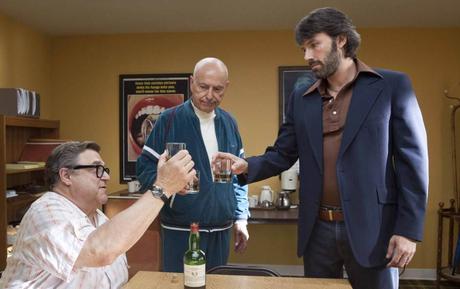
But why did that work? Fox execs. were so impressed with The Town they offered Affleck the chance to direct and star in a Daredevil reboot, and he turned them down. Shortly after that, Christopher Nolan offered Affleck the director's chair for Man of Steel, and he again declined. Why, then, did he say yes to Batman v Superman?
Maybe after The Avengers' game-changing business he wished he could have those offers back again?
Or maybe his pride had been wounded by the Academy snubbing him for a Best Director nomination for Argo and just about everyone ignoring the merits of his acting performance in the film, and after that it felt nice to be so heavily courted to play Batman.
Or maybe it was a case of Affleck following the advice he comically offered Matt Damon in Jay and Silent Bob Strikes Back: "What've I been telling you? You gotta do the safe picture. Then you can do the art picture." When Affleck was cast in Batman v Superman he'd already been cast in Gone Girl, and he ended up filming the two back-to-back, Gone Girl first, BvS second. So, he made his art picture ( Gone Girl) and then his safe one ( BvS), and also got to learn shot composition from David Fincher and the latest in cinematography and special effects from Zack Snyder. That way he'd be better prepared to direct a blockbuster movie of his own someday ( Argo, remember, cost less than $50m to make), and have a home at WB for his passion projects like Live By Night.
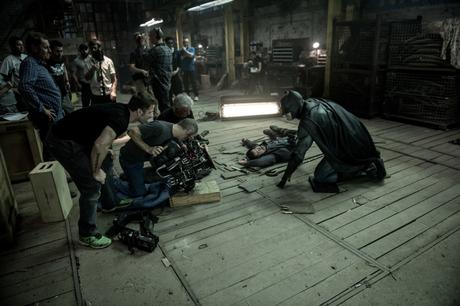
Or maybe it was due to the loyalty he felt toward WB. As he told THR, "" Gone Baby Gone was not at all financially successful. But [WB exec Jeff] Robinov brought me into his office and said: 'I think you're a hell of a filmmaker, actor. What do you want to do? Tell us, and we'll do it.' And I wasn't having those meetings with every studio." The Town came out of that meeting which then led to Argo. Robinov was fired in-between those movies, but his successors moved quickly to assure Affleck of their continued desire to work with him.
Or maybe it's a combination of all of those things with a little bit of "my kids werw all the perfect age to want to see their dad in a comic book movie" thrown in for good measure.
The great lesson Affleck learned from his many failures was to never work in something he didn't think he could be proud of. He told , "I made the decision: 'I'm never, ever, ever going to do anything where I don't absolutely kill myself to get it right','" and he appears to be putting that to the absolute test with Batman. For two solid years, he filmed three different DC movies ( Batman v Superman, Suicide Squad, Justice League) while writing another and spending his off time acting in The Accountant and writing, directing and acting in Live By Night. Plus, there's the countless hours he put into becoming a mountain of a man.
This was not the future most had expected for Affleck after Argo, but it's the future he chose for a variety of reasons. Now he's reeling from the first outright failure of his directing career, continued Batman v Superman fallout and ever anxious WB execs. desperate to get a Batman movie to market. It's almost like the man who made Surviving Christmas and Gigli sometimes can't stop himself from making some poor choices. Putting The Batman off until they can get it right, regardless of who is in the director's chair, is not one of them.

